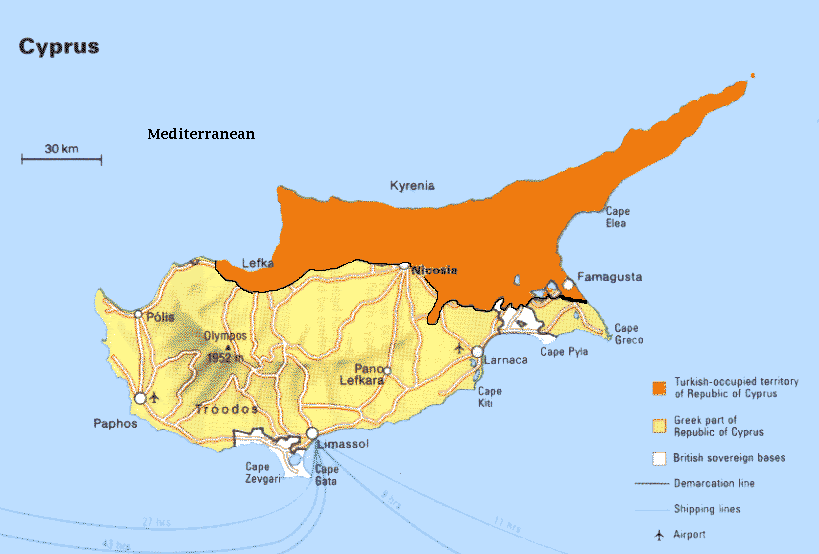
Calling at illegal ports in Cyprus
Since the Turkish invasion in 1974 the Island of Cyprus is divided into two, the occupied Northern Cyprus and the Southern part of Cyprus which is known as the Republic of Cyprus. After the invasion the Council of Ministers of the Republic of Cyprus declared all ports in occupied Northern Cyprus (the ports of Famagusta, Karavostasi and Kyrenia), as closed for all vessels.
|